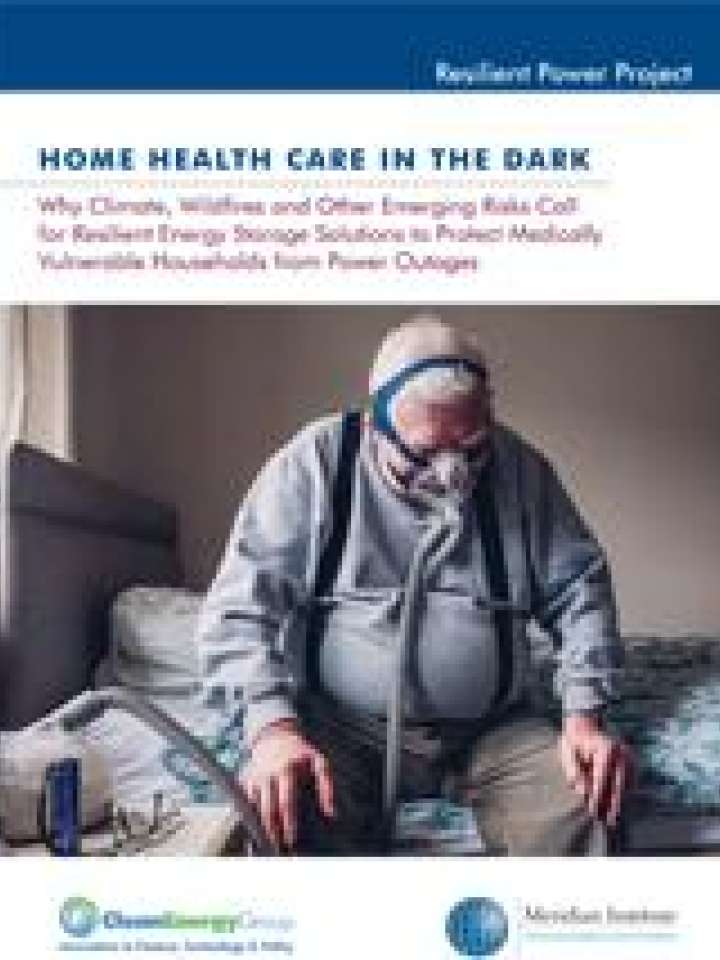Home health care in the dark: Why climate, wildfires and other risks call for new resilient energy storage solutions to protect medically vulnerable households from power outages
This report examines the risks associated with power outages for Americans reliant on electricity for in-home medical and mobility equipment. Current energy security technologies and policies will need to adjust to meet the needs of the home health care community. The report features concrete recommendations for policymakers and public health professionals, including:
- funding research into energy security and resilience for home health care beneficiaries;
- developing better data that accurately portrays the size and scope of the electricity-dependent population;
- collaborating with healthcare providers and home health agencies;
- fostering utility-administered residential battery storage programs; and
- encouraging legislators to expand Medicare coverage to include battery storage.
The need for battery storage solutions is especially critical today as more people opt to receive medical care at home, rather than in an institution such as a nursing home or hospital. Also, as natural disasters continue to intensify in frequency and severity, access to resilient backup power in the event of an outage is increasingly a matter of life or death for these residents.
State and local governmental agencies, utilities, and even insurance providers should recognize battery storage and solar as critical to life support during a disaster and provide opportunities for medically vulnerable, electricity-dependent individuals to access resilient systems.
Explore further
